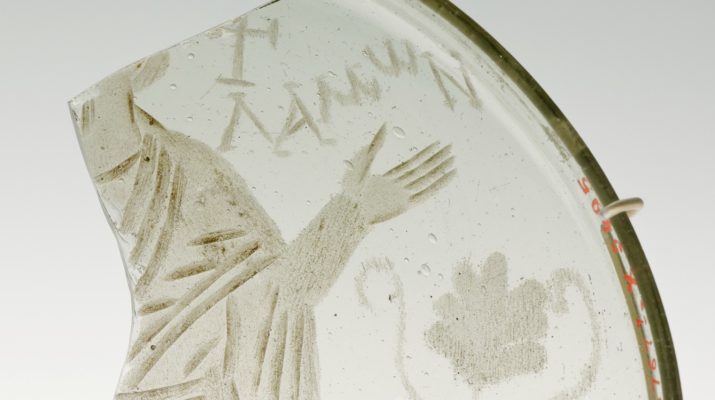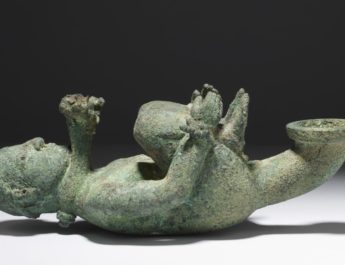1 Thessalonians 2:1-8
Proper 25A
1 You yourselves know,A brothersB and sisters, that our comingC to you
A “know” = eido. This is to know, consider perceive, appreciate, behold, or remember. It means seeing with one’s eyes, but also figuratively, it means perceiving – seeing that becomes understanding. So, by implication, this means knowing or being aware.
B “brothers” = adelphos. From a (with, community, fellowship) + delphus (womb). This is a brother in a literal or figurative sense. It is also used of another member of the Church.
C “coming” = eisodos. 5x in NT. From eis (to, into, towards, among) + hodos (way, road, path, journey). This is an entrance or reception in a literal of figurative sense.
wasD not in vain,E 2 but though we had already sufferedF and been shamefully mistreatedG
D “was” = ginomai. This is to come into being, to happen, become, be born. It can be to emerge from one state or condition to another or is coming into being with the sense of movement or growth.
E “in vain” = kenos. 18x in NT. Properly, this is something that is empty or void. Hence, it is worthless, foolish, ineffective, morally void, pretentious, unreal, or false.
F “already suffered” = propascho. 1x in NT. From pro (before, ahead, earlier than, above) + pascho (to be acted on for good or ill; often used for negative treatment; properly, feeling strong emotions – especially suffering; can also be the ability to feel suffering). This is to suffer beforehand.
G “shamefully mistreated” = hubrizo. 5x in NT. From hubris (insult, damage, harm, reproach, insolence; damage that includes reproach); from huper (by, under, over, above, under the authority of another). This is to insult, mistreat, steal. Figuratively, it is to harm someone so that they experience a loss, particularly to their reputation or honor. So, it is violence or abuse. This is where the word “hubris” comes from.
at Philippi,H as you know, we had courageI in our GodJ
H “Philippi” = Philippoi. 4x in NT. From Philippos (Philip, meaning one who loves horses or is fond of horses); {from philos (dear, beloved, a friend, an associate; friendship with personal affection, a trusted confidante; love from personal experience with another person) + hippos (horse)}. This is Philippi, a city in Macedonia.
I “had courage” = parresiazomai. 9x in NT– 7 in the book of Acts. From parresia (confidence, openness, boldness, outspokenness; can imply assurance – free speech); {from pas (all, every, each) + rhesis (speech); {from rheo (say, speak of, command)}}. This is to be confident, speak freely or with boldness. It can also refer to a confident spirit or manner.
J “God” = Theos. From Proto-Indo-European origins, meaning do, put, place. This is God or a god in general.
to declareK to you the gospelL of God in spite of greatM opposition.N
K “declare” = laleo. From lalos (talkative). This is to talk, say, or preach.
L “gospel” = euaggelion. From eu (well, good, rightly) + aggelos (angel, messenger; a messenger from God bringing news – whether a prophet or an angel); {from aggellos (to bring tidings); probably from ago (to bring, lead, carry, guide)}. This is literally “the good news,” used for the gospel. This is also where “evangelism” comes from.
M “great” = polus. This is much, often, plenteous – a large number or a great extent.
N “opposition” = agon. Related to “gospel” in v2. 6x in NT. From ago (see note L above). This can refer to a gathering or contest – as an athletic competition such as a race. It can also refer to conflict, struggle, opposition or a fight. It is used figuratively in a positive sense – as fighting the good fight of faith. It is also used in a negative figurative sense for effort or anxiety. Properly, this word refers to a place where people gather, which implies the game or contest.
3 For our appealO does not spring from deceitP or impure motivesQ or trickery,R
O “appeal” = paraklesis. From parakaleo (to call to, summon, invite, request, or beg; to exhort or admonish; to encourage, comfort, or console; has legal overtones and is used of one’s advocate in a courtroom); {from para (beside, by, in the presence of) + kaleo (to call by name, invite, to name, bid, summon, call aloud); {related to keleuo (to command, order, direct); from kelomai (to urge on)}}. This is calling someone for help, a personal exhortation, comfort, encouragement, joy, entreaty, urging. This word comes from a legal setting – as bringing evidence to advocate for another in court. This word is related to the word “Advocate” or paraclete used for the Holy Spirit.
P “deceit” = plane. 10x in NT. From planos (wandering, misleading, a deceiver or imposter). This is wandering. Figuratively, it can refer to error, sin, delusion, fraudulence. It can also mean one who strays from piety.
Q “impure motives” = akatharsia. 10x in NT. From akathartos (unclean or impure, whether a thing or a person; something that is not mixed with something that would taint; unclean in a ritual or moral sense; also demonic or foul); {from a (not, without) + kathairo (to cleanse or purify by purging out unwanted elements); {from katharos (clean, clear, pure, unstained; clean in a literal, ritual, or spiritual sense; so, also guiltless, innocent or upright; something that is pure because it has been separated from the negative substance or aspect; spiritually clean because of God’s act of purifying)}. This is uncleanness or impurity. It can be physical, ritual, or moral.
R “trickery” = dolos. 11x in NT. From dello (probably to decoy). This is literally bait, but used figuratively for treachery, stealth, guile, or deceit.
4 but, just as we have been approvedS by God to be entrusted withT the message of the gospel,U even so we speak,V
S “approved” = dokimazo. From dokimos (what passes the test, approved, acceptable, genuine, verified); from dechomai (to warmly receive, be ready for what is offered, take, accept, or welcome; to receive in a literal or figurative sense) or dokeo (to have an opinion, seem, appear, suppose; a personal judgment; to think); {from dokos (opinion)}. This is to test, examine, prove. It is to approve after subjecting to a test to determine if it is real or acceptable. It is to test in a literal or figurative sense.
T “entrusted with” = pisteuo. From pistis (faith, faithfulness, belief, trust, confidence; to be persuaded or come to trust); from peitho (to have confidence, urge, be persuaded, agree, assure, believe, have confidence, trust). This is to believe, entrust, have faith it, affirm, have confidence in. This is less to do with a series of beliefs or doctrines that one believes and more to do with faithfulness, loyalty, and fidelity. It is trusting and then acting based on that trust.
U “message of the gospel” = euaggelion. Same as “gospel” in v2. See note L above.
V “speak” = laleo. Same as “declare” in v2. See note K above.
not to pleaseW mortalsX but to please God, who testsY our hearts.Z
W “please” = aresko. 17x in NT. Root means to fit together. This is to please or be agreeable. It implies voluntarily serving others, satisfying others, or making good to win their favor or approval. It is often used for moral agreement. It can mean being agreeable or trying to be agreeable. Used 9x of pleasing people in a negative way, 5x of pleasing people in a positive way, and 3x of pleasing God.
X “mortals” = anthropos. Probably from aner (man, male, husband) + ops (eye, face); {from optanomai (to appear, be seen); perhaps from horao (become, seem, appear)}. This is human, humankind. Used for all genders.
Y “tests” = dokimazo. Same as “approved” in v4. See note S above.
Z “hearts” = kardia. Literally the heart, but figuratively mind, character, inner self, will, intention, thoughts, feelings. Also, the center of something. The word heart is only used figuratively in the Old and New Testaments. This is where “cardiac” comes from.
5 As you know and as God is our witness,AA we never cameBB with wordsCC
AA “witness” = martus. This is a witness whether having heard or seen something. It refers to a witness literally, judicially, or figuratively. By analogy, this is a martyr. This is also where the word “martyr” comes from.
BB “came” = ginomai. Same as “was” in v1. See note D above.
CC “words” = logos. From lego (to speak, tell, mention). This is word, statement, speech, analogy. It is a word that carries an idea or expresses a thought, a saying. It could refer to a person with a message or reasoning laid out in words. By implication, this could be a topic, line of reasoning, or a motive. It can be used for a divine utterance or as Word – Christ.
of flatteryDD or with a pretextEE for greed,FF
DD “flattery” = kolakeia. 1x in NT. Related to kolax (fawner, one who flatters). This is flattery done for personal gain or advantage.
EE “pretext” = prophasis. 7x in NT. From pro (before, ahead, earlier than, above) + phaino (to bring light, cause to appear, shine, become visible or clear). This is outward appearance, pretense, excuse, pretext.
FF “greed” = pleonexia. Related to “great” in v2. 10x in NT. From pleonektes (one who covets more, covetousness, avariciousness, one who defrauds or harms others’ rights; one eager for gain); {from pleion (many, more, great, having a greater value, more excellent); from polus (see note M above) + echo (to have, hold, possess)}. This is avarice, greed, advantage, desire for more. It can imply fraudulence or extortion.
6 nor did we seekGG praiseHH from mortals, whether from you or from others,II
GG “seek” = zeteo. This is to seek, search for, desire. It is searching for something by inquiring or investigation. It can be seek in a literal or figurative sense. There is a Hebrew figure of speech “to seek God’s face” so it can also mean to worship God. Alternately, you could seek someone’s life i.e. plot to kill them.
HH “praise” = doxa. Related to “approved” in v4. From dokeo (see note S above). This is literally something that evokes a good opinion – something that connects to our understanding of intrinsic worth. The ultimate expression of this is, of course, God and God’s manifestation. So, this is opinion, honor, and dignity, but also praise, glory, renown, and worship.
II “others” = allos. This is other, another. Specifically, it is another of a similar kind or type. There is a different word in Greek that speaks of another as a different kind (heteros).
7 though we might have made demandsJJ as apostlesKK of Christ.LL
JJ “made demands” = dunamai + en + baros + eimi. Dunamai is to be able, or something that is possible. It can also be empowered or being powerful. The Greek word for “miracle” (dunamis) comes from this root. Baros is 6x in NT. From barus (heavy, burdensome; figuratively, violent, oppressive; that which presses down on someone so that they cannot move freely) OR from the same as basis (foot, step, pace); {from baino (to walk to go)}. This is weight, load, authority, abundance. It is something of worth. Eimi is to be or exist.
KK “apostles” = apostolos. From apostello (to send, send away, send forth as a messenger, to commission); {from apo (from, away from) + stello (to set, arrange, prepare, provide for); {probably from histemi (to stand, place, set up, establish, stand firm)}}. This is a messenger – someone sent out on a mission as an envoy or delegate. It can also refer to someone set at liberty. Generally, this is a messenger who is meant to be a representative of the one who sent them. They are thus, set apart on a mission literally or figuratively.
LL “Christ” = Christos. From chrio (consecrate by anointing with oil; often done for prophets, priests, or kings). Literally, the anointed one, Christ. The Greek word for Messiah.
But we were gentleMM amongNN you, like a nurseOO tenderly caringPP for her own children.QQ
MM “gentle” = nepios. 15x in NT– used in 1 Corinthians 13 (“when I was a child…”). This may be from ne (not) + epos (word; by extension, to speak) {from epo (to answer, bring word, command). This is an infant, child, minor, or immature person. It can also be used figuratively for someone who is childish or unlearned.
NN “among” = mesos. Perhaps from meta (with among, behind, beyond; implies a change following contact or action). This is middle, among, center, midst.
OO “nurse” = trophos. 1x in NT. From trepho (to bring up, rear, nourish, fatten, nurse; properly, to enlarge through proper nourishment); {perhaps from trophe (food, meal, support, wages); form trope (turning, shifting, a revolution; figuratively, a variation); from trepo (to turn)}. This is a nurse, caregiver – can be a mother or someone else who brings nourishment and care.
PP “tenderly caring” = thalpo. 2x in NT. Perhaps related to thallo (to warm). This is to warm, cherish, comfort, nourish. It can be to restore someone to health through nourishment or figuratively to foster.
QQ “children” = teknon. From tikto (to beget, bring forth, produce). This is a child, descendant, or inhabitant.
8 So deeply do we care forRR you that we are determinedSS to shareTT with you not onlyUU the gospel of God
RR “deeply…care for” = himeiromai. 1x in NT. From homeiromai (to desire or have fondness for) OR from himeros (a yearning). This is desiring earnestly with affection, to long for, love deeply.
SS “determined” = eudokeo. Related to “gospel” in v2 & to “approved” in v4 & “praise” in v6. From eu (good, well, well done) + dokeo (see note S above). This is to think well of, to be pleased or resolved. Properly, this is what someone finds good or acceptable – approving of some action or generally thinking well of.
TT “share” = metadidomi. 5x in NT. From meta (with, among, after, beyond) + didomi (give, offer, place, bestow, deliver; give in a literal or figurative sense). This is to share, bestow, offer something to make a change.
UU “only” = monon. From monos (alone, single, remaining, mere, desolate); from meno (to stay, abide, wait, endure). This is merely, only, simply, sole. It can also imply alone.
but also our own selves,VV because you have becomeWW very dearXX to us.
VV “selves” = psuche. From psucho (to breathe, blow). This is breath, the breath of life, the self, individual, soul. This is the word for that which makes a person unique – their identity, will, personality, affections. This isn’t the soul as the immortal part of us, but as our individuality. It is also not life as a general concept, but specific to people. This is where the words psyche and psychology come from.
WW “become” = ginomai. Same as “was” in v1. See note D above.
XX “dear” = agapetos. From agape (love, goodwill, benevolence; God’s divine love); from agapao (to love, take pleasure in, esteem; to prefer). This is Beloved or very dear one. It is a title for the Messiah, but also for Christians. Properly, this is one who personally experiences God’s love.
Image credit: “Lamon Cup Louvre E11767.7” – it is “a “fragment of engraved cup with a holy man praying, probably the hermit Palaemon, teacher of St Pachomius,” probably from between 300 CE – 400 CE.




